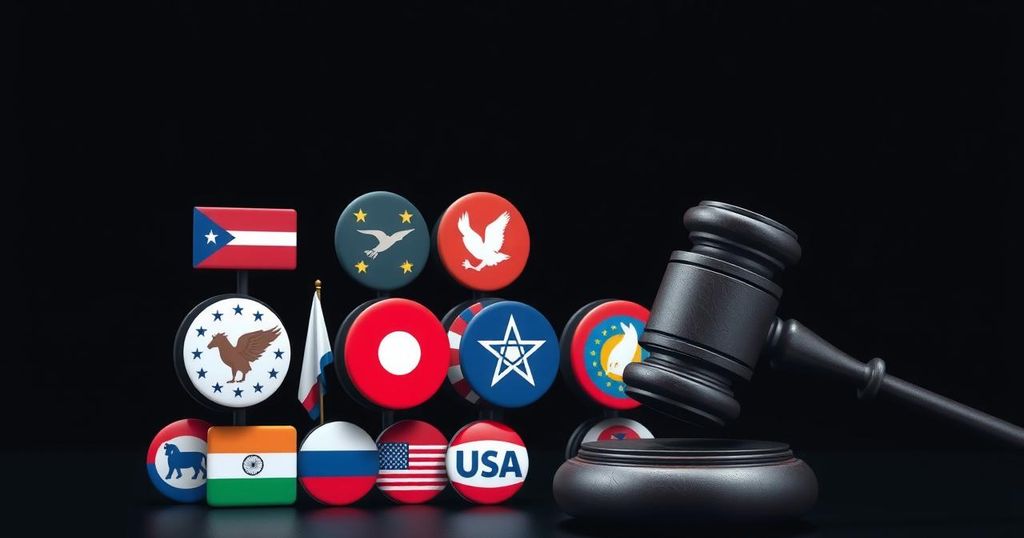Mali Political Parties Challenge Military Ban in Court

Political parties in Mali are legally challenging a military government ban on their operations. This ban, announced by General Assimi Goita, has resulted in appeals to various courts aiming to contest its legality. Critics argue that the ban infringes on fundamental rights, amid ongoing violence and instability in the country.
Political parties in Mali are taking urgent legal measures after being banned by the military government. The announcement, made by the junta under General Assimi Goita, prohibits all political parties and organizations from operating, along with banning public meetings. This decision was communicated through a statement to the Agence France-Presse (AFP) late Wednesday evening.
In response, these political entities have filed appeals to six high courts in the Bamako district and made a supplementary appeal to the administrative section of the Supreme Court. Their legal challenge specifically targets the presidential decree that led to their dissolution, aiming to contest both the decree’s legality and its implications for political life in Mali.
The political parties involved argue that the ban represents a significant violation of fundamental freedoms, including the rights to association, assembly, and participation in public life. Presently, approximately 300 political groups are documented in Mali, and the junta claims that dissolving these groups is essential for reducing their overall numbers, although critics remain skeptical about this justification.
This move marks a continuation of restrictive measures imposed by the military regime, which gained power following consecutive coups in 2020 and 2021. In April, a national consultation led by the junta culminated in recommendations for dissolving political entities and instituting stricter regulations regarding their formation.
In a notable development, the junta has proposed extending General Goita’s presidency for a new five-year renewable term, despite earlier commitments to restore power to civilian leaders by March of last year. Recently, a group of writers, lawyers, and economists in Mali published an opinion piece denouncing the junta for infringing on fundamental rights. They urged the military authorities to collaborate with various sectors of Malian society to establish a new electoral timeline, particularly for a combined presidential and legislative election in the near future.
Additionally, this coalition has demanded the release of all individuals classified as “prisoners of conscience.” The constitution of Mali, established in 1992 and reaffirmed by the junta in 2023, guarantees multiparty systems as well as freedoms of expression and association, heightening the stakes in current political disputes.
Since 2012, Mali has been plagued by violence stemming from insurgent factions linked to Al-Qaeda and various local criminal gangs. The ongoing instability raises concerns about the future of democratic processes in the country, with the military’s latest actions being scrutinized both locally and internationally.
In summary, the situation in Mali remains tense as political parties challenge the military government’s recent ban on their operations. With appeals filed against the decree, there are heightened questions regarding fundamental rights and the government’s commitment to democracy. The junta’s actions appear to reflect a growing trend of restrictions on freedoms, necessitating concerted efforts from various societal actors to protect democratic norms. The ongoing violence further complicates an already precarious political landscape, threatening the country’s stability and governance.
Original Source: www.trt.global







